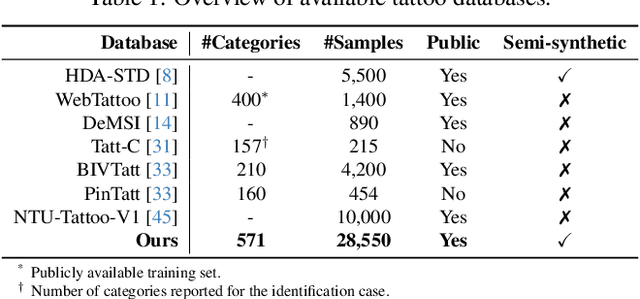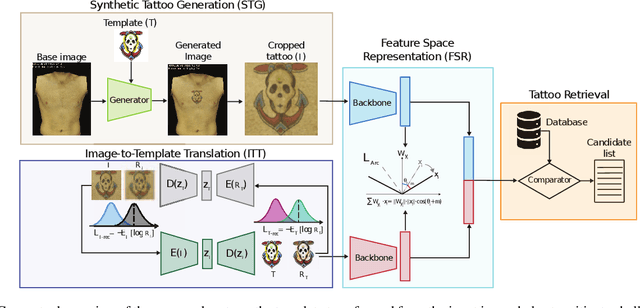Maciej Salwowski
TattTRN: Template Reconstruction Network for Tattoo Retrieval
May 13, 2024



Abstract:Tattoos have been used effectively as soft biometrics to assist law enforcement in the identification of offenders and victims, as they contain discriminative information, and are a useful indicator to locate members of a criminal gang or organisation. Due to various privacy issues in the acquisition of images containing tattoos, only a limited number of databases exists. This lack of databases has delayed the development of new methods to effectively retrieve a potential suspect's tattoo images from a candidate gallery. To mitigate this issue, in our work, we use an unsupervised generative approach to create a balanced database consisting of 28,550 semi-synthetic images with tattooed subjects from 571 tattoo categories. Further, we introduce a novel Tattoo Template Reconstruction Network (TattTRN), which learns to map the input tattoo sample to its respective tattoo template to enhance the distinguishing attributes of the final feature embedding. Experimental results with real data, i.e., WebTattoo and BIVTatt databases, demonstrate the soundness of the presented approach: an accuracy of up to 99% is achieved for checking at most the first 20 entries of the candidate list.
 Add to Chrome
Add to Chrome Add to Firefox
Add to Firefox Add to Edge
Add to Edge